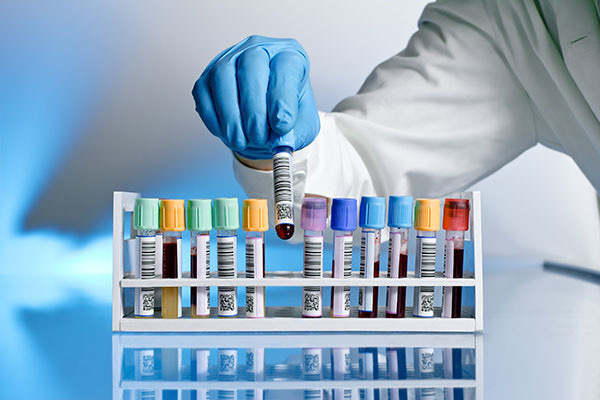Empowering Patients for Better Health Outcomes: A Comprehensive Guide
< back to the blog
Your Health, Your Hands: A Guide to Patient Empowerment
The Shift Towards Patient Empowerment
The dynamics of healthcare are undergoing a significant transformation as the pendulum swings towards a patient-centric model of care. No longer, passive recipients, patients are now active participants in their health journey, reflecting the growth of patient empowerment as an integral part of modern healthcare. Patient empowerment is associated with improved health outcomes and patient satisfaction.
Understanding Patient Empowerment
In essence, patient empowerment refers to the process whereby patients gain greater control over decisions and actions affecting their health. The concept is multidimensional, intertwining facets of knowledge, skills, attitude, and self-awareness. Empowered patients are informed, confident, and actively involved in their healthcare, shaping decisions about their treatments, and managing their health conditions effectively.
The Importance of Health Literacy
Health literacy is one of the pillars supporting the structure of patient empowerment. The World Health Organization describes health literacy as the cognitive and social skills which determine the motivation and ability of individuals to gain access to, understand, and use information in ways that promote and maintain good health.
A deeper understanding of health literacy’s role becomes apparent when we look at research findings. Studies indicate that individuals with high health literacy levels have a tendency to engage in preventive health behaviors, have better disease-specific knowledge, and have better control over chronic diseases like diabetes or hypertension.
Health literacy can greatly influence patient-physician interaction. When patients have a good understanding of medical terminologies, treatment regimens, and the implications of their health condition, it leads to more productive discussions, enabling patients to ask relevant questions and make informed decisions. It also facilitates better compliance with medication, as patients are aware of the importance of adhering to their treatment plan.
However, health literacy is not just about individuals. It extends to the community as well. High levels of health literacy can lead to health-promoting behaviors within communities, such as immunization uptake, preventive screenings, and healthy lifestyle practices.
Given the significance of health literacy, it’s crucial to implement strategies that can improve it among patients. One primary strategy is the use of simple, non-technical language. The use of medical jargon can overwhelm patients, making it difficult for them to comprehend the information. Instead, using simple language, supplemented with analogies or metaphors, can make the communication more effective.

Visual aids are another tool to enhance health literacy. Infographics, diagrams, videos, and other visual content can help simplify complex health information, making it easier for patients to grasp.
The digital revolution has brought a plethora of health information at our fingertips. Digital resources like online health portals, e-books, podcasts, and health apps can serve as powerful tools to enhance health literacy. They offer easy access to a wide range of health-related information, allowing patients to research at their own pace and comfort.
Nonetheless, it’s important to guide patients towards reliable and trustworthy digital resources. The internet is rife with misinformation, which can mislead patients. Healthcare providers can help by suggesting credible health websites, apps, and online resources.
Overall, enhancing health literacy is an ongoing, dynamic process that requires consistent effort, patience, and creativity. It is a vital component of patient empowerment, one that paves the way for better health outcomes and a patient-centric healthcare system.
The Power of Patient Engagement
Patient engagement, another pillar of patient empowerment, involves patients actively participating in their healthcare. Patients who are more engaged tend to have better health outcomes and incur lower costs. The promotion of shared decision-making, open communication, and active listening can significantly enhance patient engagement.
Tools for Patient Empowerment
In the journey toward patient empowerment, the tools we use can have a significant impact. These resources can bolster the patient’s knowledge base, provide avenues for support, and help to navigate the healthcare journey more effectively. Let’s explore a few of these tools in detail.
1. Online Resources
The internet has revolutionized the way we seek and receive information, especially in health care. It’s a vast repository of information where one can find details about diseases, treatment options, preventive care, and wellness practices, to name a few. Websites like Mayo Clinic, WebMD, and the Centers for Disease Control and Prevention (CDC) offer comprehensive, research-backed information about a wide range of health topics.
Additionally, online forums and communities (like PatientsLikeMe) offer a platform for patients to share their experiences, challenges, and insights, offering peer-to-peer support. However, it’s essential to exercise discernment when using online resources as the internet can also be a breeding ground for misinformation.
2. Health Apps
With the proliferation of smartphones, health apps have become a significant part of patient empowerment. They can aid in several aspects of healthcare, from tracking health metrics (like blood pressure, glucose levels, or sleep patterns) to setting medication reminders, from providing telehealth services to maintaining digital health records. The use of mobile health apps significantly improved patient engagement and health outcomes.
3. Patient Support Groups
Support groups provide a comforting platform for patients to connect with others who are going through similar health challenges. The power of shared experiences can not only alleviate feelings of isolation but also provide practical advice, coping strategies, and emotional support. The American Cancer Society recognizes the value of support groups and emphasizes their role in improving quality of life for cancer patients.
4. Personal Health Records (PHRs)
PHRs are a digital version of a patient’s health history, including doctor visits, medication records, and lab results. They offer a consolidated view of the patient’s health, enabling them to make informed decisions. PHRs have been associated with better adherence to medication and an overall improvement in patient satisfaction.
5. Patient Education Programs
These programs aim to enhance a patient’s knowledge about their condition and equip them with the skills to manage their health effectively. They cover a range of topics, including disease information, treatment options, medication management, and lifestyle changes. Patient education programs can lead to improved health behaviors and better health status.

The Role of Healthcare Providers in Patient Empowerment
Healthcare providers have a central role in promoting patient empowerment. By encouraging patients to ask questions, they stimulate understanding and curiosity. Shared decision-making, another key tactic, ensures patients feel their opinions matter, thereby promoting better adherence to treatment plans. Furthermore, comprehensive information about treatments and their possible side effects helps patients make informed choices, reinforcing their autonomy and self-confidence.
Conclusion: The Future of Patient Empowerment
Envisioning the future of healthcare, patient empowerment stands as a beacon of change and progress. As healthcare continues to evolve, its approach needs to be increasingly patient-centric, valuing, and promoting patient participation. With research indicating the impact of patient empowerment on improved health behaviors and outcomes, the path forward necessitates continuous efforts from all healthcare stakeholders to empower patients.
The journey to patient empowerment is ongoing, fostering an environment where every patient can truly hold their health in their hands. This era is one where patients, equipped with knowledge and support, become the masters of their health destinies, marking an enlightened shift in the healthcare paradigm.
This blog was brought to you by Prevencio, Inc. who believe patients can make better heart decisions with their HART AI-powered blood tests. To learn more about these powerful and preventative tests, visit their website www.prevenciomed.com, or order a test kit today.


